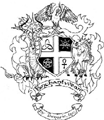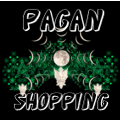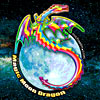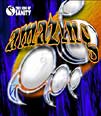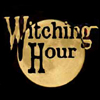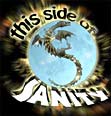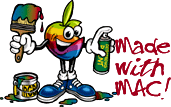Beer is an alcoholic beverage.
- origin
- history
- nutritional information
- magick correspondences and uses
- ritual uses
- Goddesses and deities
- health care
- Chinese herbology
- cautions and contraindications
origin:
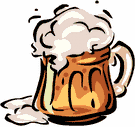 Origin: There is debate as to where the first beer was brewed, but Sumeria and ancient Egypt (Kemet) were certainly among the first civilizations to brew beer. Half of all the grain grown in Sumeria was used for beer and the ancient Egyptians referred to the beverage as “joy-beer”.
Origin: There is debate as to where the first beer was brewed, but Sumeria and ancient Egypt (Kemet) were certainly among the first civilizations to brew beer. Half of all the grain grown in Sumeria was used for beer and the ancient Egyptians referred to the beverage as “joy-beer”.
history:
History: Leavened bread from ancient Egypt around 4000 B.C.E. Herodotus called the Egyptians “the bread eaters”. Onions, bread, and beer were the basics of Egyptian the diet. Onions were extremely popular and used extensively in cooking. Beer was extremely popular among the ancient Egyptians.
Egypt: Barley was popular in ancient Egypt, where it was used to make bread and to make barley beer sweetened with honey. Barley beer is likely to have been the first alcoholic beverage humans made.
History: The Little Ice Age (from the 14th to mid-19th centuries) is the reason that Americans today now drink eleven (11) times as much beer as wine. The lower temperature hurt wine production (grapes required warmer climate) and encouraged the production of beer.
History: Prior to the American Revolution, George Washington made beer from molasses.
Day Beer Flowed: At 12:01 a.m. April 7, 1933, beer was legally available in the U.S. again. Incoming President Franklin Roosevelt convinced Congress to pass a Constitutional Amendment repealing the infamous 18th Amendment (Prohibition, which outlawed alcohol except for religious use by the Roman Catholic Church). It took eight months for the 23rd Amendment (revoking Prohibition) to be ratified by enough states. Roosevelt convinced Congress to modify the Volstead Act on March 13, 1933, changing the definition of “alcoholic” and “intoxicating” beverages from more than 0.5% to more than 3.2%, thereby making beer legal. Throughout the United States, sirens, fire alrams, and train whistles greeted the legalization of beer. Approximately 800 persons stood outside the White House while two cases of beer where turned over to the Secret Service for delivery to President Roosevelt.
nutritional information:
Alcohol is harmful to the liver and therefore should be reduced or eliminated from your diet.
Beer is abundant with silicon (a trace mineral and an element) that helps prevent the body from absorbing aluminum. Aluminum is a neurotoxin and plays a role in the development of Alzheimer’s disease. Do not drink more than one beer a day, as drinking more is related to increased risk of breast cancer. The silicion in beer can also help prevent osteoporosis by strengthening bones (similar to the role of calcium) and preventing loss of calcium in bones.
See also Chinese herbalism below for Chinese gender and Chinese flavor.
magickal correspondences and uses:
Western element: fire
Magickal uses: purification
Beer was used for purification magick.
ritual uses:
Ritual uses: Lammas celebrations include offerings of bread and beer.
January 6: Twelfth Night: European holy day. Day to clean up the debris from the Yule Feast.
Wassailing: Pre-Christian Germanic tradition was to wassail, which comes from the Anglo-Saxon phrase waes hael, which meant “to be whole” or “to be healthy”. The Anglo-Saxons would toast each other’s health and share drink from a large wooden bowl. The wassail drink was called “lamb’s wool”. The traditional mixture was made by adding spices to hot ale, beer, or mead. In more recent times it has been made from hot apple cider. The traditional spices included: nutmeg, ginger, and cinnamon (especially nutmeg), sweetened with sugar, honey, or sugar-coated crab apples (especially honey). The mixture was served hot and often topped with toasted bread.
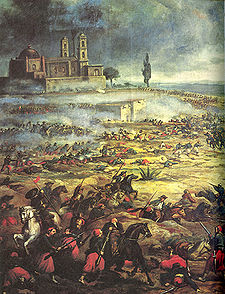 painting by Mike Manning, released into the public domain |
May 5: Cinco de Mayo: Mexican holiday. The fifth of May. Celebrates the Battle of Puebla, May 5, 1862, in which the Mexican army under General Ignacio Zaragoza Seguín defeated a much larger attacking French army at the city of Pueblo. This day is primarily celebrated as a historical event in the Mexican state of Pueblo and also celebrated as a beer drinking holiday in the United States.
July 6: Kemetic (ancient Egyptian) tradition. Do not taste bread or beer on this day. (from the Cairo Calendar)
 August 1: Lammas: Wiccan holy day. One of the eight Wiccan Sabbats. Lammas is derived from “loaf-mass”, which in turn is derived from Lughnasadh. Celebrated in modern times with offerings of bread and beer.
August 1: Lammas: Wiccan holy day. One of the eight Wiccan Sabbats. Lammas is derived from “loaf-mass”, which in turn is derived from Lughnasadh. Celebrated in modern times with offerings of bread and beer.
October 8: Day of Erik the Red: Norse (Asatru) holy day. Day of remembrance of Erik the Red, a follower of Thor, first Viking to land at Greenland (there were already native Americans there). His son, Leif Erikson, founded Vinland. Members of Asatru drink a beer in honor of Erik the Red.
November 4: Day of making ointment for Asar: Kemetic (ancient Egyptian) holy day. The day of making ointment for Asar [Osiris]. Do not taste bread or beer. Drink only grape juice or wine until the sun sets.
 November 23: Nihinahe or Shinjosai Festival: Japanese holy day. Nihinahe or Shinjosai Festival, for Konohana-Hime, Dive Ata Princess, grand-daughter of Amaterasu, the Sun Goddess. Celebration of the rice harvest and saki (a rice
November 23: Nihinahe or Shinjosai Festival: Japanese holy day. Nihinahe or Shinjosai Festival, for Konohana-Hime, Dive Ata Princess, grand-daughter of Amaterasu, the Sun Goddess. Celebration of the rice harvest and saki (a rice
November 28: Feast of Het Heret and Sekhmet: Kemetic (ancient Egyptian) holy day. Feast of Het Heret [Hathor] and Sekhmet. Honors Het Heret [Hathor] as Sekhmet, Lioness, Sun Goddess, and Beer Goddess, getting drunk on red beer and returning to a gentle form.
December 31: Feast Day of Sekhmet: Kemetic (ancient Egyptian) holy day. Feast Day of Sekhmet. This feast day typically includes the drinking of red beer. Sekhmet is Goddess of Endings, but in the ancient calendars this feast was celebrated in the middle of the month of Mekhir. Did the ancient priestesses know that this would be the end of the year in our modern calendar?
wedding reading
Wedding reading from ancient Egypt:
“Let My Love Love Me Best ”,
from the Turin Papyrus, in the Ramesside period circa 1100 BCE, Egypt.
Let my love love me best and I shall ordain
Her hands full of lotus blossoms and flowers
Full of buds and perfumes, strong ale
And beer of every brewable kind
Then she’ll give me, her love, a day to remember
Make me drink down this day to its last shadow
Ntr Sentra poem
Mau Bast! Mau Bast!
A Basti, per em setat,
erta-na chu em asui
neter sentra semu hena net'emmit,
hetep ab em asui tau heqt.
Translation:
Hail Bast! Hail Bast!
Hail Bast, coming forth from the secret place,
may there be given to me splendor in the place
of incense (cannabis smoke), herbs, and love-joys,
peace of heart in the place of bread and beer.
deities associated with beer:
- Aset (Kemetic/ancient Egyptian Goddess)
- Asar (Kemetic/ancient Egyptian deity)
- Gobniu (Celtic deity)
- Hathor (Kemetic/ancient Egyptian Goddess)
- Het Heret (Kemetic/ancient Egyptian Goddess)
- Isis (Kemetic/ancient Egyptian Goddess)
- Kremana (Slavia)
- Osiris (Kemetic/ancient Egyptian deity)
- Shoney (Scotland)
- Tenemit (Kemetic/ancient Egyptian Goddess)
Beer was used in offerings to several ancient deities. Beer was also used for purification.
health care uses:
Health Notice: Attempting to be an amateur doctor is potentially dangerous to your health. This web page is not professional medical advice. Nothing on this website should be considered as a substitute or replacement for professional medical advice. Persons should seek the advice of qualified health providers. Self-medication should not be used as a substitute for professional medical care. Please confirm all self-medication with your doctor or health care professional. See the article on healing for recommended healers.
Beer is abundant with silicon (a trace mineral and an element) that helps prevent the body from absorbing aluminum. Aluminum is a neurotoxin and plays a role in the development of Alzheimer’s disease. Do not drink more than one beer a day, as drinking more is related to increased risk of breast cancer. The silicion in beer can also help prevent osteoporosis by strengthening bones (similar to the role of calcium) and preventing loss of calcium in bones.
Chinese herbalism:
Chinese gender: strongly yin (cool)
cautions and contraindications:
Cautions and contraindications: You want to reduce or eliminate alcohol from your diet. Alcohol is harmful to the liver.
See also: alcohol.



